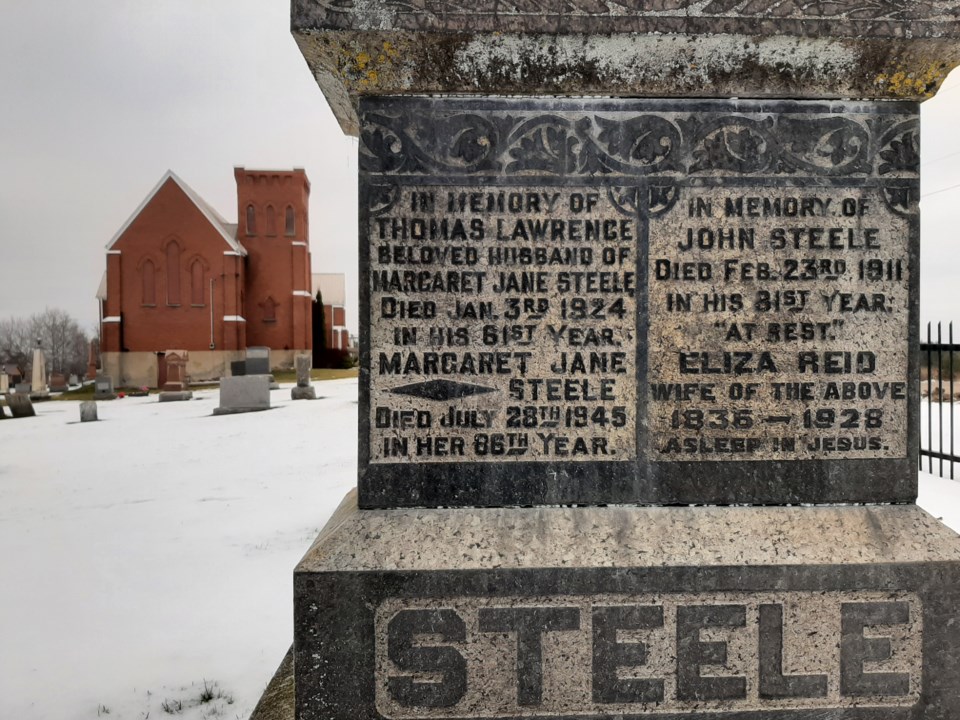The year is 1850. John Steele, a young Irish immigrant, found himself in Toronto (then known as York) and at a crossroads in his life.
He was poor in wealth but rich in ambition and wanted to taste success. His skills as a blacksmith would be in demand; he was sure of that. But where would he ply his trade?
A country boy, the city held no appeal for him. So, he hefted his bag of tools and marched up Yonge Street all the way to West Gwillimbury. There, he put a stake into the ground and opened a blacksmith shop. Soon, the shop became a hive of activity, and a hamlet, named Steele’s Corners in his honour, grew up around it.
It’s a wonderful story, an example of how immigrants to the country could literally etch their names into history.
The problem is it’s not true. It’s been told often enough over the years, the tale has been taken as gospel, but the storytellers have stretched the truth a bit to create a good yarn.
That’s too bad because it overshadows the true-life story of John Steele.
His story begins with James Samuel Steele, born in County Antrim, Northern Ireland, in 1802. Lured by the promise of a new beginning, he booked passage to Canada, a trip that would have taken the better part of two months. We know he was in West Gwillimbury by 1825 because he married local lass Margaret McAfee that year. His brother, Hugh, who had accompanied him, married Margaret’s sister.
In 1830, James purchased a 100-acre farm in Bradford West Gwillimbury (the south half of Lot 11, Concession 11). John, the third of nine children, was born on the new farmstead on Sept. 13, 1830. The Steele farm soon had 85 bountiful acres under cultivation, so John was raised in comfortable, though not affluent, circumstances.
John elected not to follow in his father’s footsteps, but rather apprenticed himself to a blacksmith. By the time he was about 20 years of age, he had mastered his trade and looked to strike out on his own. He opened a blacksmith shop on the southwest corner of Yonge Street and the 14th Concession.
As the oft-told tale suggested, Steele’s shop thrived and became a hive of activity. A few years later, a school was built nearby. Locals began referring to the crossroads as Steele’s Corners. A blink-and-you’ll-miss-it hamlet began to develop.
After tasting a bit of professional success, Steele found some personal happiness as well by marrying Mary Elizabeth Reid, known as Eliza, in 1855. The couple had a long and happy union that resulted in seven children.
Around 1867, his blacksmith shop burned down. It was then the height of the Fenian Scare, when Irish American radicals launched raids into Canada to force Britain’s hand in granting Ireland its independence. There were wild rumours the shop was the victim of Fenian arson. Indeed, a neighbour’s son was so certain of it that when he saw the flames rising from the structure, he hid in his home’s attic so the dreaded Fenians wouldn’t find him.
John rebuilt, this time on the southeast corner of the crossroads. It, too, burned down. This time, there was no such wild speculation. The Fenian Scare had passed, and wiser heads simply recognized fires occurred when one was dealing with a forge. So, John rebuilt, a third and final time, on the northwest corner.
John’s son, William James, joined him at the busy smithy, and when his health began to fade around the turn of the century, William James took over the business.
John Steele died Feb. 23, 1911. Mary outlived him by nearly two decades, dying Oct. 15, 1928. The blacksmith shop he founded, and the crossroads named in his honour, both survived John’s death.
So, you see, John Steele’s life was notable enough without exaggeration. Like a blacksmith hammering his initials into a piece of metal, he left his mark on Bradford West Gwillimbury.



